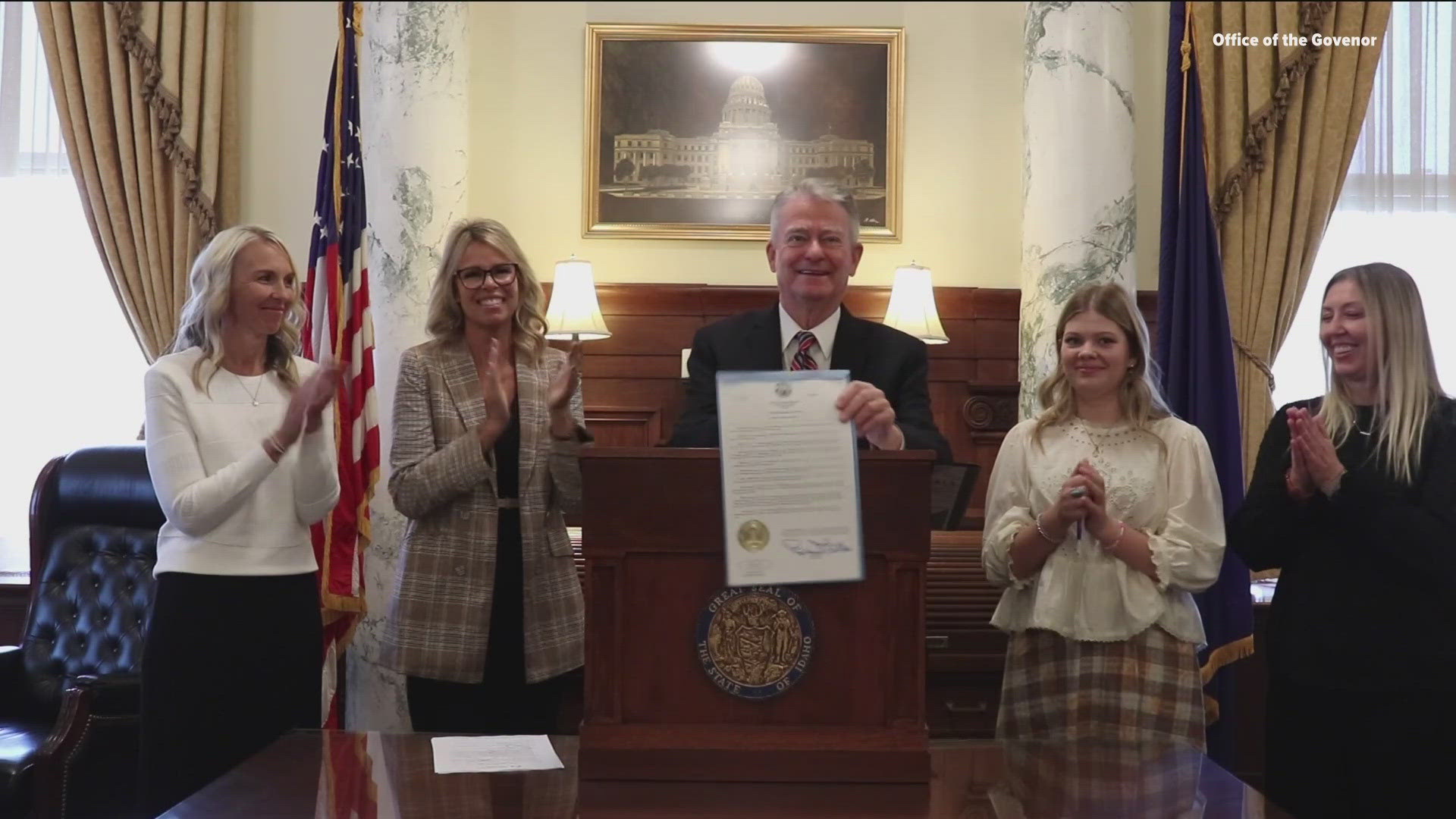BOISE, Idaho — After several Idaho public school districts passed district-wide cellphone bans in 2024, some state leaders want policies to be statewide.
On Thursday, Governor Brad Little and Debbie Critchfield, the state superintendent of public instruction, launched the "Phone Free Learning Act."
“When kids are more concerned about what’s happening on their cell phones than what they are learning in class, we need to respond," Little said in a press release Thursday. "Cell phones, and social media in particular, present negative effects on young Idahoans’ mental health and learning environments. We are encouraging school districts to adopt cell phone restriction policies that best fit the students, families, and teachers they serve."
"We've heard a tremendous amount of positive feedback," Critchfield told KTVB Thursday. "I'm getting to know my friends better, or I have different friends, or I'm experimenting with clubs and hobbies that I might not always have done."
Critchfield describes the act as a nudge and invitation for school districts. If more districts adopt district wide cellphone policies, she said that would help bring uniformity to the issue.
Each school district that adopts a district-wide cell phone policy by the end of the 2024-2025 school year will receive $5,000.
Critchfield said the money is coming from the "tail end" of federal dollars that the state received during COVID-19.
"There's little pockets here and there that can't be utilized, in other ways that the money is expiring soon, and so the Governor and I determined that this was a good use of that a way to sweeten the conversations around getting these policies going," Critchfield said.
School districts that already have an existing policy will get the money too. There is enough money for all 190 public school districts in Idaho to receive the full $5,000 each.
"It is one-time money... purchase the storage if you need it or reimburse yourself for the storage that you've already purchased," Critchfield added.
She added that details of the policies will be decided by individual school districts.
"It's not a one-size-fits-all,' she said. "It's going to look different. That's intentional. It is something that we want to be locally driven and locally decided upon."
The Department of Education plans to get money to the school districts as soon as possible, and that could be in the new few weeks.

